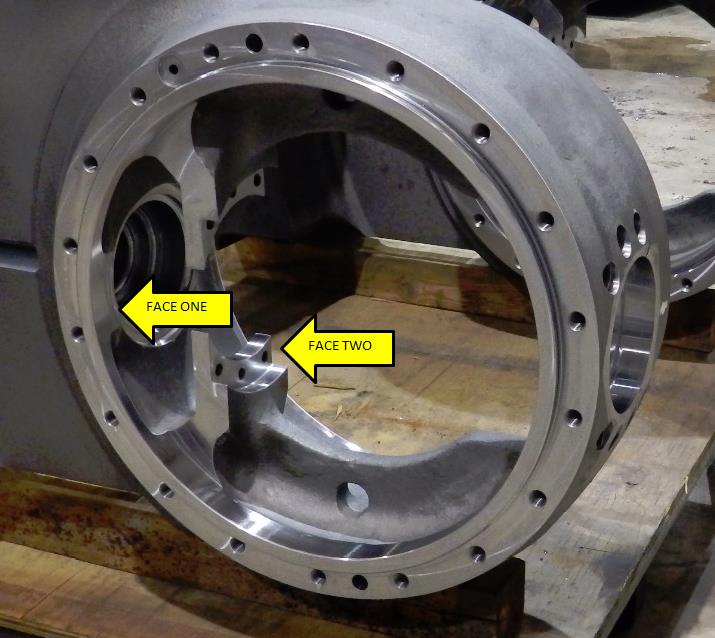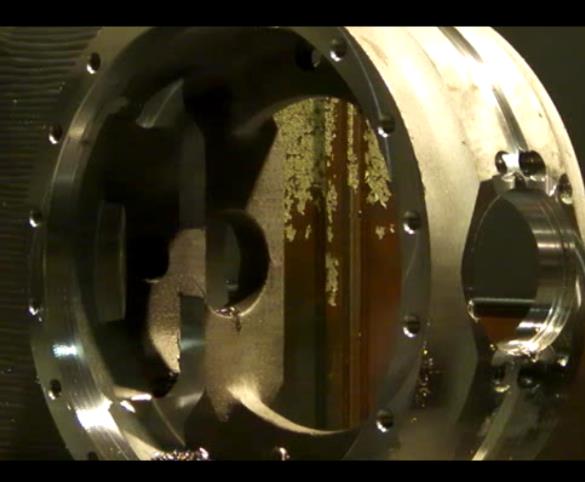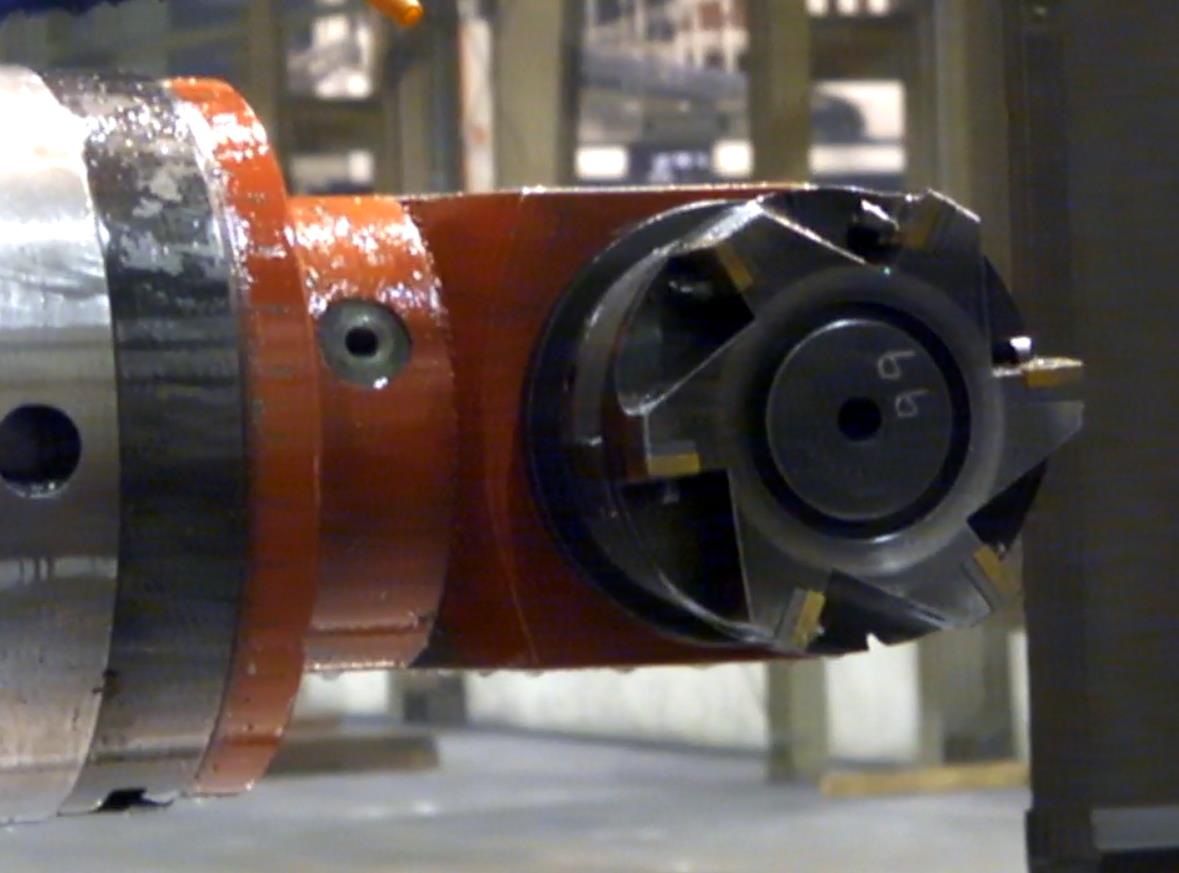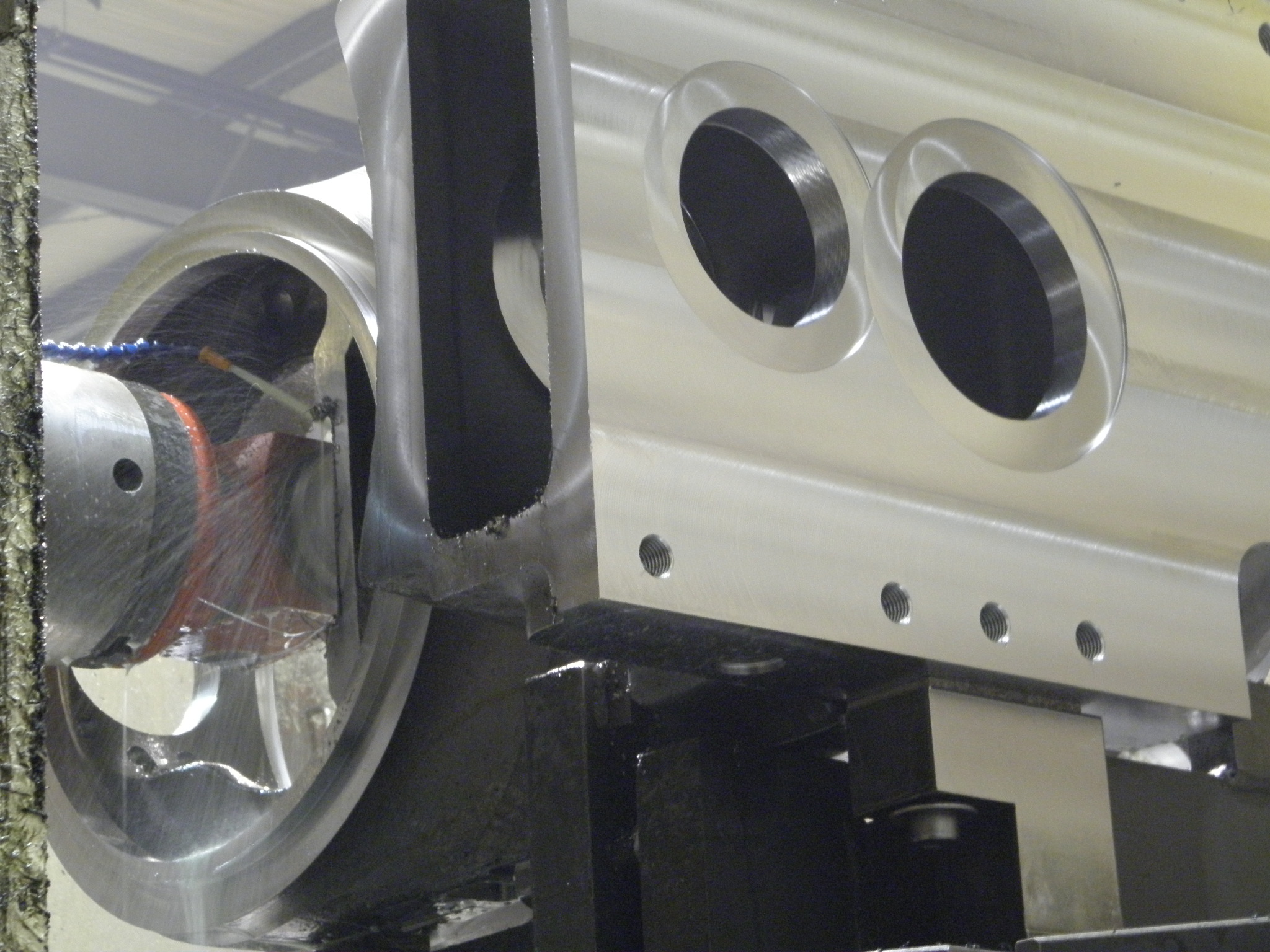Large CNC machining of large steel casting and large steel fabrications frequently requires milling operations in tight spaces where a standard right angle head attachment will not fit. In these cases it is necessary for the machining supplier to purchase a custom right angle head small enough to fit into the available space. Right angle head attachments are available that have a core standardized design that is customized to fit the specific application. This article is a look at an application of a customized right angle head.
The large steel casting has two faces inside the casting that must be machined. Picture #1 shows the casting and the two faces. There is 399 mm (15.7 inches) of clearance from the finished surface of face two to the top inside diameter of the casting. Picture #2 shows the casting prior to machining. You can see that there is a lot of stock removed from face two. There are also casting ribs inside the casting. Both of these features further restrict the space available for the right angle head and the milling cutter.
The engineer at the machining supplier uses the casting drawing, machining drawing and the expected variation in casting material to calculate the clearance that is available for the machining operation. He then uses the tool size and machining motion to calculate the maximum size of the right angle head. The supplier of the right angle head is consulted to determine which of their heads can be customized to fit into the space. An adapter will be needed to adapt the right angle head onto the spindle of the large CNC horizontal boring machine. Picture #3 shows the right angle head with tool mounted that was customized for this job.
You can see that the width of the head is close to the diameter of the milling cutter. There is a trade off between the diameter of the milling cutter and the envelope that the head will need for travel. The larger the milling cutter the smaller the envelope will be. There is a maximum diameter for the milling cutter to machine the diameter of surfaces to be milled. The custom right angle head is a significant investment. It is important to consider the family of parts that can benefit from the right angle head. The engineer also has to consider potential future applications. The machining engineer works with the engineer at the right angle head supplier to specify the dimensions and other characteristics of the right angle head. Picture #4 shows the right angle head in action.
It is difficult to appreciate the tight space that this milling operation works in without seeing it in action. The video below will give you a better idea.
The surfaces milled into this large steel casting are important for the functioning of the final assembled part. The large steel casting design engineer, the machining engineer, and the right angle head engineer all have a role to play to find an economical solution to meet the design requirements of the final part. This is an example of successful collaboration across the supply chain. The contract large machining supplier is at the center of this collaboration.



